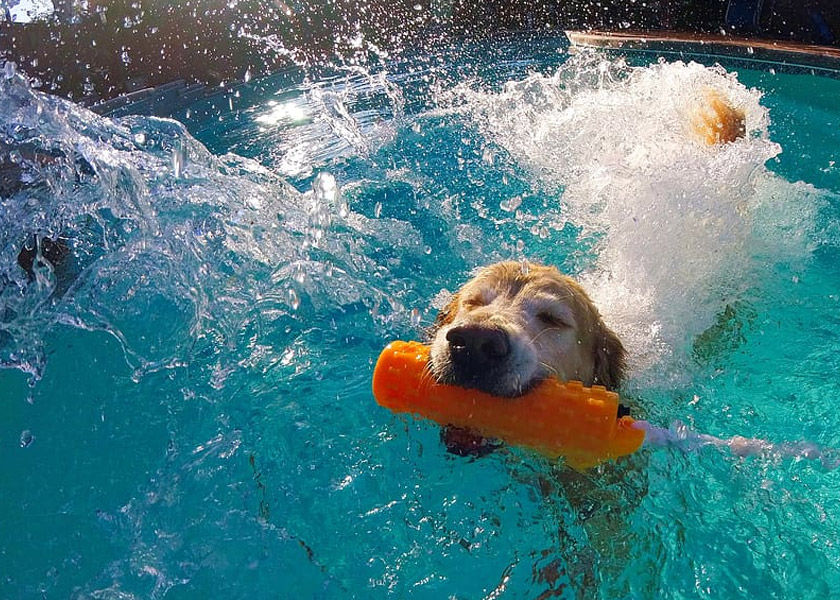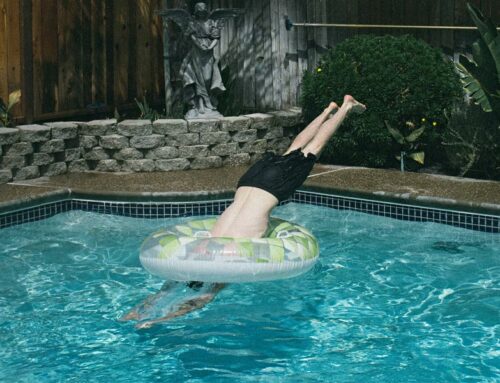After many months of winter, summer is around the corner, and humans are not the only ones enjoying the high temperatures outside. Dogs also want a cool relief from the high temperatures, so you will likely share your pool. Although the pool in your backyard is an excellent way to minimize the effects of summer, our team recommends you consider the impact your pool has on pets. Your furry friend also seeks relief during the hot weather and will likely jump into the pool for comfort. However, the chemicals in your pool may pose a risk to your pet’s overall well-being.
Is Pool Water Dangerous for Dogs to Drink?
Pool owners use chlorine to prevent bacteria and other unwanted critters in the water. While this may be an effective preventive measure, is it safe for your furry friend? The chlorine levels in a residential pool are not generally harmful to dogs if they drink small amounts of pool water. However, excessive drinking can cause chemical shock, especially if the chemical balance is unsafe.
The best solution is to provide a new source of drinking water for your pets so that pool water is not the primary source. Although low chlorine levels have been deemed safe for pet consumption by the Center for Disease Control (CDC), we recommend consulting a professional to alleviate doubt and uncertainty.
Does Pool Water Hurt Dogs’ Skin?
Short swimming sessions are harmless to pets, but too much exposure to chlorine and other pool chemicals can cause skin irritation. This usually occurs in pools where the chemicals are imbalanced, and the dogs stay in the pool long. Although the damage may not be a significant cause for concern, delaying care can compromise your pet’s overall well-being.
Many people reduce the amount of chlorine used to treat their pools to mitigate such scenarios, but this is not a viable solution. Reducing chlorine levels means improper treatment, allowing microorganisms like algae, fungi, parasites, and bacteria to thrive in the water. This can cause harm to you and your furry friend through accidental skin contact, ingestion, or inhalation. These pathogens cause more damage than the chlorine levels used to maintain your pool.
Can Puppies Swim in Chlorine Pools?
When it comes to chlorinated pools, puppies share the same amount of risk as adult dogs. Ingesting too much can cause gastrointestinal complications and skin irritation. Puppies are small and have more delicate skin, making them more susceptible to the adverse effects of chlorinated pool water than older dogs. If you have a puppy on your premises, limiting swim sessions to minimize exposure and the associated risks is a good idea.
We recommend maintaining optimal pool safety when allowing puppies access. These are young creatures not experienced in water and are weaker than adult dogs. Consider a life jacket for your puppy and ensure it fits to mitigate life-threatening scenarios. Contact us to learn about risky pools and why we are the go-to demolition company.





